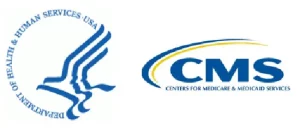WASHINGTON, DC – August 29, 2023 – Drug cost negotiation is one of the provisions in the Inflation Reduction Act of 2022 (IRA) that will make health care more affordable for seniors. On August 29th, the federal government announced the first 10 drugs that the Centers for Medicare and Medicaid Services (CMS) will negotiate cost with pharmaceutical companies. The government aims to obtain the lowest maximum fair price to make drugs more affordable while allowing the drug companies to make a profit. Medicare beneficiaries will save on the cost of their most expensive prescription medicine. If Medicare spends less money on prescription drugs, then everyone benefits because drug coverage premiums will fall.
Some of the most widely prescribed or expensive medicines that older Americans use are on the list of 10. The IRA limits the selection criteria for the drugs that can be negotiated. Meena Seshamani, the deputy administrator for CMS said that, only drugs were selected that have been on the market for at least 7 years without a competing generic version and “biologic” drugs that have to administered by a physician must be on the market for at least 11 years. The drugs are: Eliquis & Xarelto (blood thinners), Jardiance & Januvia (for diabetes treatment), Farxiga (for the treatment of diabetes and heart failure), Entresto (for heart failure), Enbrel (for the treatment of autoimmune disease), Imbruvica (for the treatment of blood cancer) and Stelara (for psoriasis and other inflammatory disorders). The 10th drug includes the insulin medicine Novolog and many of its related versions. The price changes will take effect in 2026. The Inflation Reduction Act allows 30 more medicines to be selected over the next 2 years for price changes to begin in 2027 for 15 drugs and 2028 for the remaining drugs.
The cost for these 10 drugs represented about 20% of the total spending for Medicare enrollees over the past year. The drugs cost over $50 billion for the year between June 1, 2022 through May 31, 2023. This does not include rebates and discounts that the drug companies may have set up after price negotiation with the private market. Medicare covered most of the cost; however, 9 million Medicare beneficiaries had to spend almost $3.5 billion in out-of-pocket costs.
America is the only developed nation in the world where a citizen can become financially-strapped because of the high cost of health care. Oftentimes, hard-working Americans have to compromise their health by spending their limited resources on food and shelter instead of prescription medicine. According to research from the Commonwealth Fund, about 9% of Medicare enrollees ages 65 and older said that in 2021 either they did not fill their prescription or they skipped taking a drug dose due to cost.
In addition to including legislation to fight the climate crisis, lowering energy costs, and creating good paying jobs, the IRA lowers the cost of prescription drugs and health care for Medicare recipients and for people in the Affordable Care Act (ACA) exchanges.
This is how the IRA lowers health care costs for Medicare recipients:
- Medicare will be able to negotiate prices of certain drugs with pharmaceutical companies
- Beginning this year, insulin co-payments will be capped at $35 a month
- Beginning in 2025, out-of-pocket costs for prescription medicines will be capped at $2,000 annually
Other health care savings include:
- Drug company rebates if prescription prices outpace inflation
- 3 more years of Marketplace subsidies by the federal government
Here are some health & financial impacts of the IRA:
- 4 million people will save on the cost of their prescription medicine, particularly expensive drugs for cancer or multiple sclerosis.
- 3 million Americans used insulin to treat diabetes in 2020 and many will save money
- 13 million Americans will avoid increasing Marketplace premiums for 3 years.
Drug companies and their allies have filed 8 lawsuits challenging the IRA provision forcing drug price negotiations in behalf of Medicare enrollees. Drug companies and some politicians argue that lower drug prices through negotiation will disincentivize drug research and reduce the number of new drugs that are brought to market.
In a statement on August 29th by President Biden, “Millions of Americans are forced to choose between paying for medicines they need to live or paying for food, rent, and other basic necessities. Those days are ending.”
Listen to the full report below:
Contact: Dr. Dick Needleman, Health reporter, 103.3 AshevilleFM, [email protected]
More Posts for Show: Asheville FM News Hour
